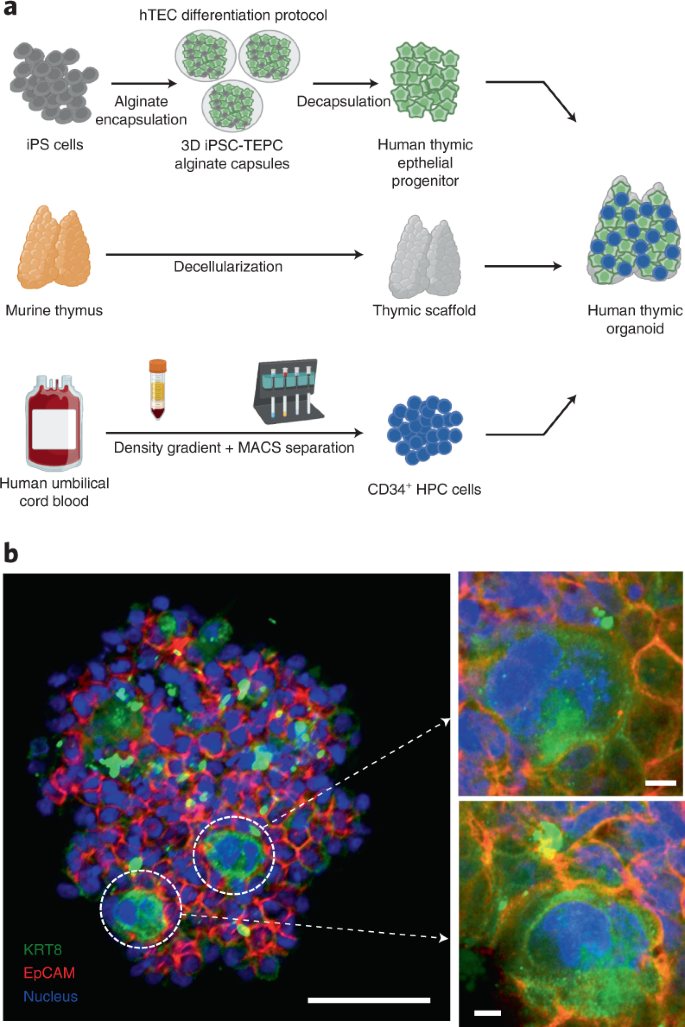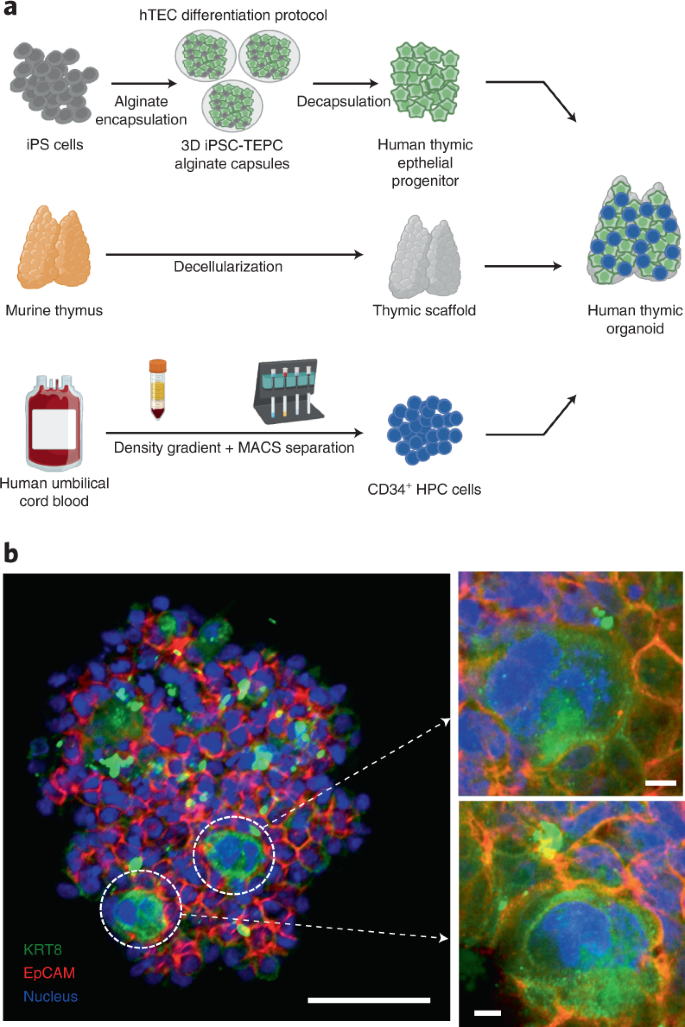The thymus contains two major cellular compartments: the transient populations of developing T cells originating from hematopoietic progenitor cells (HPCs) and residential stromal cells, which include thymic epithelial cells (TECs). TECs are essential in regulating T cell lineage differentiation and education3. We had developed a tissue engineering method that enabled us to construct a functional mouse artificial thymus by repopulating a decellularized thymus scaffold with isolated TECs4. We adapted this method to generate artificial human thymus, and to overcome the inaccessibility of human TECs, we differentiated iPSCs into thymic epithelial progenitors cells (iPSC-TEPCs) using a multistep induction protocol. A 3D alginate encapsulation technology was used to promote more effective TEPC differentiation and maturation5. Artificial human thymus was constructed with iPSC-TEPCs and HPCs and tested for its ability to support human T cell development in hu mice (Fig. 1a).
a, Artificial thymus generation. TEPCs are derived from induced differentiation of iPSCs in a 3D hydrogel platform, mixed with CD34+ HPCs isolated from umbilical cord blood samples with magnetic-activated cell sorting (MACS), and co-injected into decellularized mouse thymus scaffolds. b, Immunofluorescence imaging of iPSC-TEPC aggregates showing the expression of the TEC markers EpCAM (epithelial cellular adhesion molecule, red) and type II cytoplasmic keratin 8 (KRT8, green); scale bars 50 μm (left) and 5 μm (right). © 2022, Zeleniak, A. et al.
Expression of key TEC markers, such as FOXN1 and KRT8, was substantially higher in 3D iPSC-TEPCs than in those derived from 2D differentiation, demonstrating the advantages of using the 3D technology (Fig. 1b). These findings are in line with results from single-cell transcriptome analysis of iPSC-TEPCs. Flow cytometry analysis of key markers of T cell development demonstrated the capability of the artificial human thymus to support the progression of T cell lineage programming in vitro. Most importantly, analysis of hu mice engrafted with the human artificial thymus showed the development of a diverse population of human T cells expressing a complex repertoire of T cell receptors (TCRs). T cell-mediated cellular and/or humoral immune responses, such as proinflammatory responses upon TCR engagement, inhibition of allogeneic tumor graft growth and immunoglobulin class switching, were restored in these mice, further indicating the development of a functional human T cell compartment.








